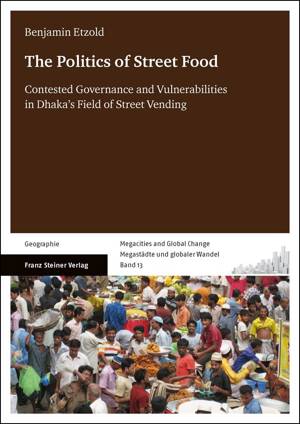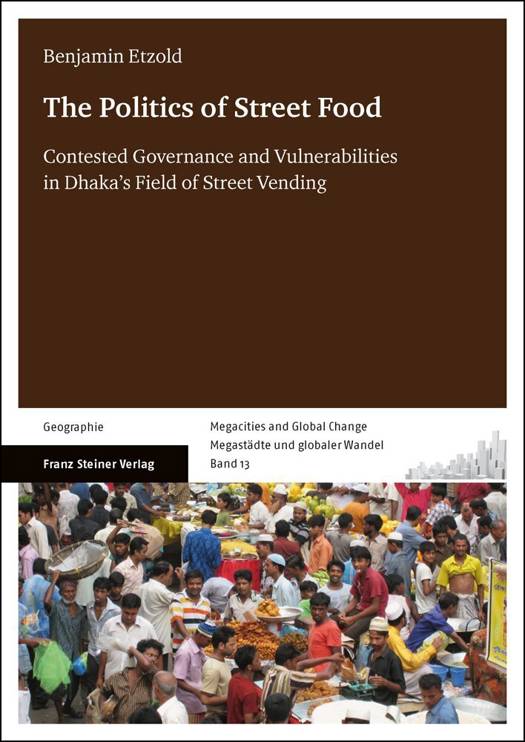
- Afhalen na 1 uur in een winkel met voorraad
- Gratis thuislevering in België vanaf € 30
- Ruim aanbod met 7 miljoen producten
- Afhalen na 1 uur in een winkel met voorraad
- Gratis thuislevering in België vanaf € 30
- Ruim aanbod met 7 miljoen producten
Zoeken
The Politics of Street Food
Contested Governance and Vulnerabilities in Dhaka's Field of Street Vending
Benjamin Etzold
€ 167,95
+ 335 punten
Omschrijving
In Bangladesh, the sale of food in public space is often contested: Street food is needed, but not wanted. 100,000 street vendors sell dishes, snacks, fruits, and beverages in the megacity of Dhaka. Street food is important for urban food security as mobile labourers and the poor rely on cheap, readily available and nutritious food. The authorities argue that encroachments of streets and footpaths are illegal and disorderly, and that street food is unhygienic. They therefore evict the vendors regularly. But the hawkers are somewhat protected through the informal rules of the street. While some of them are highly vulnerable to poverty and police raids, most navigate well through these contested governance regimes and can successfully sustain their livelihoods and contribute to urban food security. In this book, different conceptual perspectives are integrated on the basis of Bourdieu's Theory of Practice. It provides fresh insights into the role of street food in urban food system and contributes to a deeper understanding of the vulnerabilities of the urban poor, the informal governance of public space, and the dominant discourses on street vending. From a relational and critical perspective, this book captures "the politics of street food" and sketches innovative solutions towards fair street food governance.
Specificaties
Betrokkenen
- Auteur(s):
- Uitgeverij:
Inhoud
- Aantal bladzijden:
- 386
- Taal:
- Engels
- Reeks:
- Reeksnummer:
- nr. 13
Eigenschappen
- Productcode (EAN):
- 9783515106191
- Verschijningsdatum:
- 6/11/2013
- Uitvoering:
- Paperback
- Formaat:
- Trade paperback (VS)
- Afmetingen:
- 170 mm x 239 mm
- Gewicht:
- 703 g

Alleen bij Standaard Boekhandel
+ 335 punten op je klantenkaart van Standaard Boekhandel
Beoordelingen
We publiceren alleen reviews die voldoen aan de voorwaarden voor reviews. Bekijk onze voorwaarden voor reviews.







